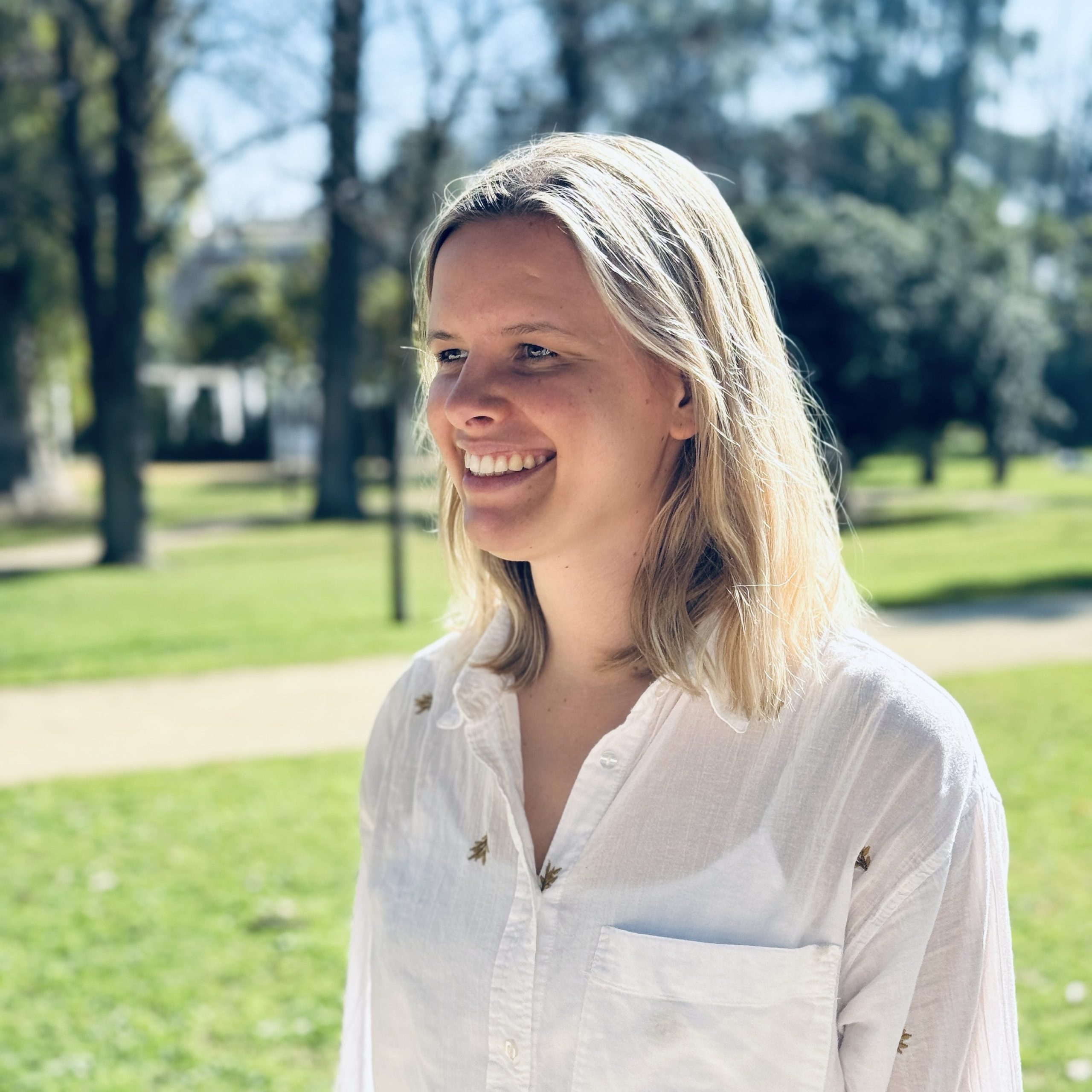
Affiliation:
Royal Military Academy & KU Leuven in Belgium
Short bio:
Vita Glorieux is a researcher and a PhD candidate at the Royal Military Academy of Belgium in collaboration with the KU Leuven. She is working alongside LtKol. Dr. Salvatore Lo Bue and Prof. Dr. Martin Euwema. Her research investigates the antecedents, dimensions, challenges, and consequences of the reintegration process following deployment. Her primary objective is to construct and test a comprehensive multidimensional, and dynamic framework to understand the reintegration process. This framework will give practitioners worldwide the opportunity to monitor not only the reintegration process but also the health, wellbeing, and motivation of employees as they return home and reintegrate into society, family life, and the workplace. The applicability of this tool extends across diverse contexts and agencies, including the military, police, voluntary organisations, and the civilian sector. Her work offers valuable insights that can enhance support mechanisms for agencies deploying personnel abroad, contributing to the overall success and well-being of their deployed personnel.
She has a background in organisational and occupational psychology (MA and BA at the University of Ghent). She is an active member of EAWOP, IMTA, and EMOP, demonstrating her commitment to advance the field and collaborate with organisational and military psychologists.
Title:
Crisis? What crisis?
Exploring professional reintegration experiences and challenges of crisis service employees after deployment
Abstract:
Our world faces many emerging and ongoing crises, from natural disasters to armed conflicts. These crises require action by a large variety of services, from firemen, humanitarian aid and healthcare workers, to peacekeeping and peace-enforcing military and police. Many of these are sent on temporary deployments, going through cycles of preparation, deployment, return and reintegration. This cycle requires a constant adaptation from operational environments to life in the home country, posing both psychological and physical challenges. In this context, our study focuses on military personnel navigating these deployment transitions. The unique challenges of this transition can strain soldiers’ resilience, necessitating a thorough examination of each deployment stage. Understanding the challenges and potential outcomes impacting performance, motivation, and well-being is crucial, given the moral and legal responsibility military defences hold for their personnel’s welfare. However, the post-deployment stage, particularly the reintegration process, has received insufficient research and policy attention. Reintegration unfolds as soldiers resume their roles in the community, family, and workplace. While extensive research focuses on individual and interpersonal dimensions of reintegration, the professional aspect remains underexplored. To address this gap, the present study delves into the professional reintegration experiences and needs of returning Belgian military service members using in-depth qualitative interviews and a quantitative questionnaire. More precisely, the study focuses on analysing the professional challenges encountered during the reintegration process, relying on extensive qualitative interviews (N=30). Additionally, the questionnaire (N=200) delves into understanding the different organisational dynamics, such as the culture and relationships among co-workers and leaders that can impact the reintegration process. This comprehensive study aims to fill existing research gaps, shedding light on the intricate dynamics of the reintegration process for the betterment of soldiers’ well-being and career sustainability.
